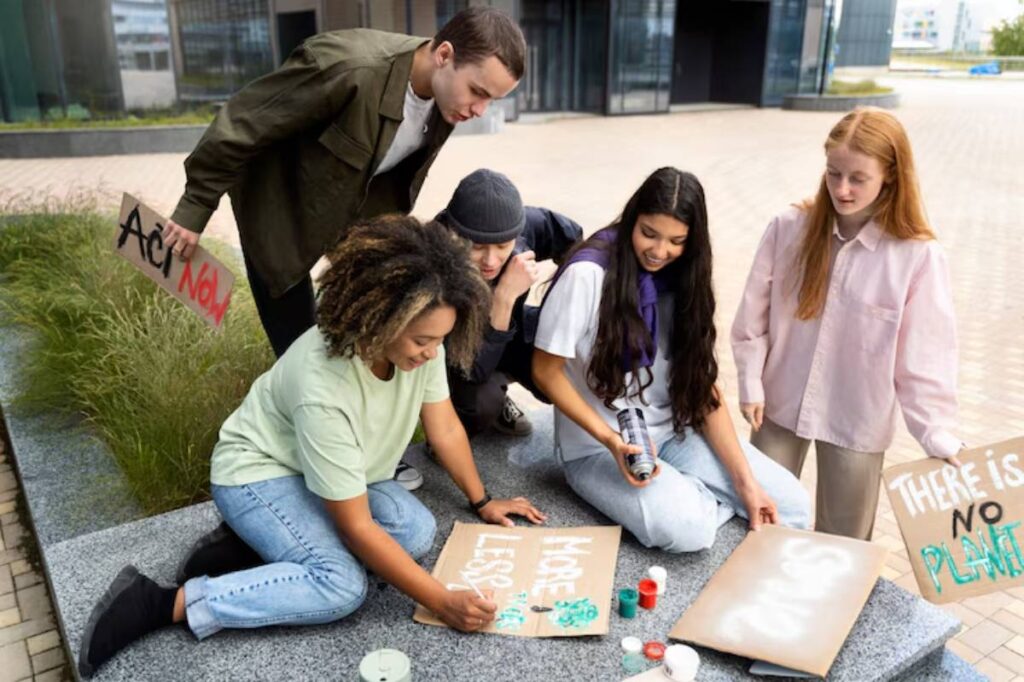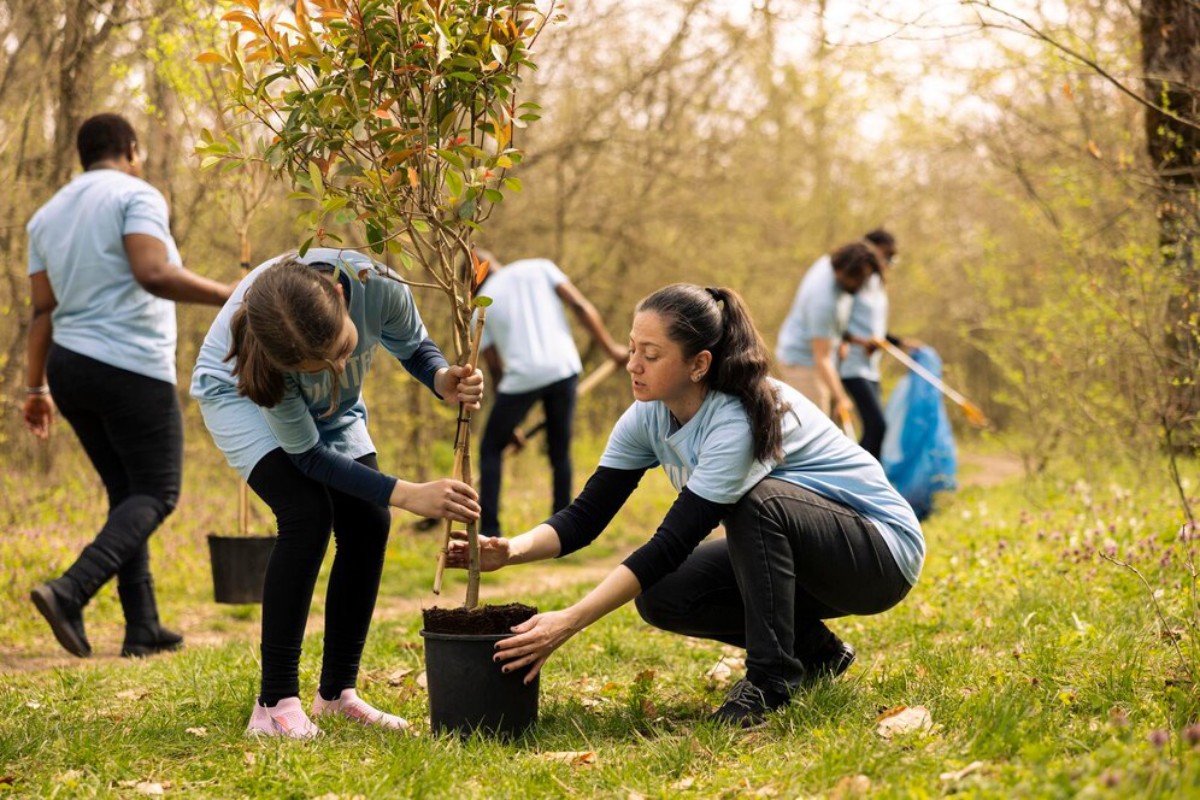The Education Blog

Scholarships That Reward Volunteer Work and Community Service
Your Impact Deserves Recognition
You’ve spent weekends planting trees, tutoring peers, organising donation drives, or supporting your local food bank. You’ve made an impact — not for credit or compensation, but because giving back feels right. But what if your passion for volunteering could also help fund your education?
The good news: it absolutely can. There’s a wide array of volunteer scholarships, community service awards, and giving back scholarships designed to support students who serve others. These awards don’t just look at grades; they reward your time, your empathy, and your initiative.
In this comprehensive guide, you’ll discover top scholarships for volunteers, learn how to position your service for success, and walk away with insider tips on how to apply and win. Whether you’re passionate about environmental causes, mentoring youth, or helping in a shelter, your time spent giving back is more than noble — it’s scholarship-worthy.
Why Volunteer Experience Matters in Scholarship Applications

It Highlights What Grades Can’t Show
Universities and scholarship committees are beginning to value well-rounded individuals. While grades and test scores still have their place, your commitment to community service says just as much, if not more, about who you are. Your volunteer work demonstrates:
- Empathy: You care about others and the greater good.
- Leadership: You take initiative, guide teams, and solve real-world problems.
- Work ethic: Volunteering takes time, planning, and commitment.
- Civic responsibility: You’re actively contributing to society.
A Perfect Fit for Non-Traditional Students
Not every student has a 4.0 GPA or a perfect test score. Volunteer-based scholarships give opportunities to:
- Students from underserved backgrounds
- Gap year students
- Career-switching adults
- Homeschooled or alternative learning students
Your life experience counts. These scholarships are built for those who make a difference, regardless of academic records.
Aligned with Donor Missions
Scholarship funders often have a personal reason or a mission-driven goal. Whether they’re fighting climate change, empowering underserved communities, or promoting global literacy, they want recipients who share those values.
So, if you’ve volunteered in spaces that reflect their mission, you’re more likely to be considered a strong candidate.
Top Volunteer and Community Service Scholarships

1. The Prudential Spirit of Community Awards
- For: Students aged 11–18 involved in volunteer work
- Prize: Up to $5,000 + all-expenses-paid trip to Washington, D.C.
- Key Tip: Detail the scope of your volunteer project and its impact on the community.
2. The Gloria Barron Prize for Young Heroes
- For: Young people making a positive difference in their communities
- Prize: $10,000
- Highlight: This award favours personal stories of leadership and innovation. Make sure you include personal transformation.
3. The Duke of Edinburgh’s International Award Scholarships
- For: UK youth who’ve completed Bronze, Silver, or Gold levels
- Benefit: Varies, with some linked to university grants
- Tip: Your volunteering section in the DofE should be robust, consistent, and community-oriented.
4. AXA Achievement Scholarship
- For: US students with a demonstrated record of community impact
- Prize: $2,500 to $25,000
- Application Note: Highlight long-term commitment and leadership roles.
5. Burger King Scholars Program
- For: Students involved in community service, including BK employees
- Prize: $1,000 to $50,000
- Edge: Strong work ethic and service involvement are required, including proof of sustained service.
6. Teen Nick HALO Awards
- For: Teens who Help And Lead Others (HALO)
- Prize: $10,000 scholarship + grant for their cause
- Focus: Media-friendly. A video component helps you stand out.
7. The Bonner Scholars Program
- For: Students who commit to 10+ hours of weekly service
- Prize: Full financial aid covering unmet need
- Institutional: Only available at select partner colleges in the US.
8. GE-Reagan Foundation Scholarship
- For: Students with leadership, integrity, and volunteerism
- Prize: $10,000 renewable annually
- Essay Tip: Focus on how you’ve demonstrated courage and service simultaneously.
9. Equitable Excellence Scholarship
- For: Students who create positive change through volunteering
- Prize: $5,000/year
- Requirement: Recommendation letter from someone involved in your service work
Where to Find More Scholarships Like These

Explore Reputable Scholarship Databases
Use trustworthy portals like:
- The Scholarship Hub (UK)
- GoingMerry.com
- Fastweb.com
- Scholarships.com
- Scholarship Owl
Check Local and Community-Based Opportunities
Smaller, local scholarships often go unclaimed:
- Rotary and Lions Clubs
- Chamber of Commerce awards
- Local foundations and women’s associations
- Faith-based organisations
Ask Volunteer Coordinators and Nonprofits
Many established volunteer programmes have relationships with scholarship funders. Some even nominate their top volunteers annually.
How to Stand Out When Applying for Volunteer Scholarships
1. Keep Detailed Records
Log your service in a spreadsheet or a journal. Include:
- Hours volunteered
- Dates and frequency
- Specific responsibilities
- Impact metrics (how many people helped, funds raised, items donated, etc.)
2. Collect Testimonials and Letters
Ask supervisors or those you’ve helped to write brief testimonials. Strong letters of recommendation can amplify your application tenfold.
3. Reflect on Your Why
Scholarship panels want to know:
- Why you got involved
- What you learned
- How it changed your goals or worldview
4. Customise Your Essay for Each Scholarship
Use their language, match their values, and highlight how your actions align with their mission.
5. Include Multimedia if Allowed
Photos, videos, and even short reels can help you stand out. This is especially useful for scholarships requiring a creative element.
Real Stories: Volunteers Turned Scholars
Jasmin’s Backpack Drive
Jasmin, a student from Bristol, created “Books for Every Child,” a backpack drive for underfunded primary schools. Her programme reached over 400 students in its first year. Her personal essay — detailing the moment a Year 2 pupil hugged her and said “this is my first book ever” — earned her a $15,000 award from a literacy-focused nonprofit.
Her advice? “Don’t be afraid to be heartfelt. It’s not just about what you did — it’s about why it mattered.”
Malik’s Mural Movement
Malik, a high school student in Birmingham, used street art to inspire change. He organised a community mural project where students painted messages of inclusion and anti-racism. His creativity and leadership earned him a community arts grant and a place in a youth leadership summit in Berlin.
Bonus Section: What If You Don’t Win the First Time?
Applying for volunteer scholarships can be competitive, and not every application will result in an award, but that’s okay.
Here’s what to do if you don’t succeed on your first try:
1. Request Feedback (If Possible)
Some scholarship programmes offer feedback on applications. If this is available, take advantage of it. You’ll get insights into what worked — and what didn’t.
2. Use the Same Material Elsewhere
Your essays, portfolios, and letters can often be repurposed for other scholarships. Tweak them to suit each award’s theme or mission, but don’t let great content go unused.
3. Keep Building Your Volunteer Profile
Volunteer work isn’t a one-time achievement. Keep engaging in meaningful projects and documenting your growth. It’ll strengthen your future applications.
4. Look for Smaller or Local Opportunities
Many applicants chase large national awards, but local foundations, businesses, or clubs often offer scholarships with fewer applicants. These are easier to win, and they add up.
5. Turn Setbacks Into Storylines
If you’ve faced obstacles while volunteering or applying, that’s part of your journey. Use these experiences to craft a compelling narrative for future applications.
6. Stay in the Loop
Sign up for newsletters from platforms like Fastweb, The Scholarship Hub, and GoingMerry. Set alerts for new service-based opportunities that match your profile.
Conclusion: Your Kindness Can Fund Your Future
You didn’t volunteer for recognition, but you deserve it. Every hour you gave to help others is a line in your story of resilience, leadership, and compassion. That story is exactly what so many volunteer scholarships, community service awards, and giving back scholarships are looking to support.
The opportunities are out there. The applications are waiting. And the world needs more students like you — thoughtful, passionate, and generous — to lead the way forward.
Your Next Steps:
- Shortlist at least 3 scholarships from this guide
- Begin drafting your service story
- Reach out for a recommendation letter this week
Have you won a service-based scholarship? Know a local one others should hear about? Share it in the comments!









